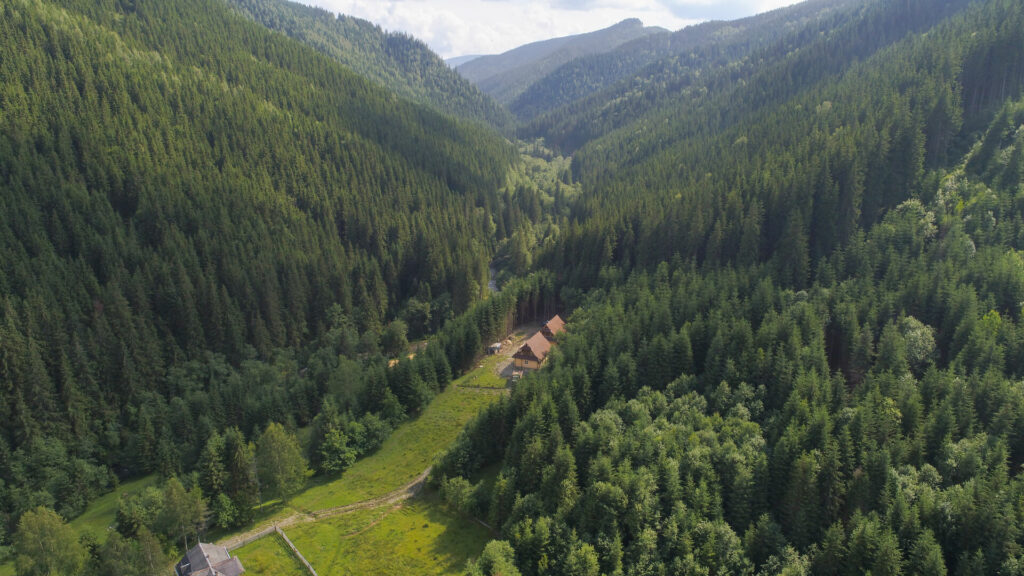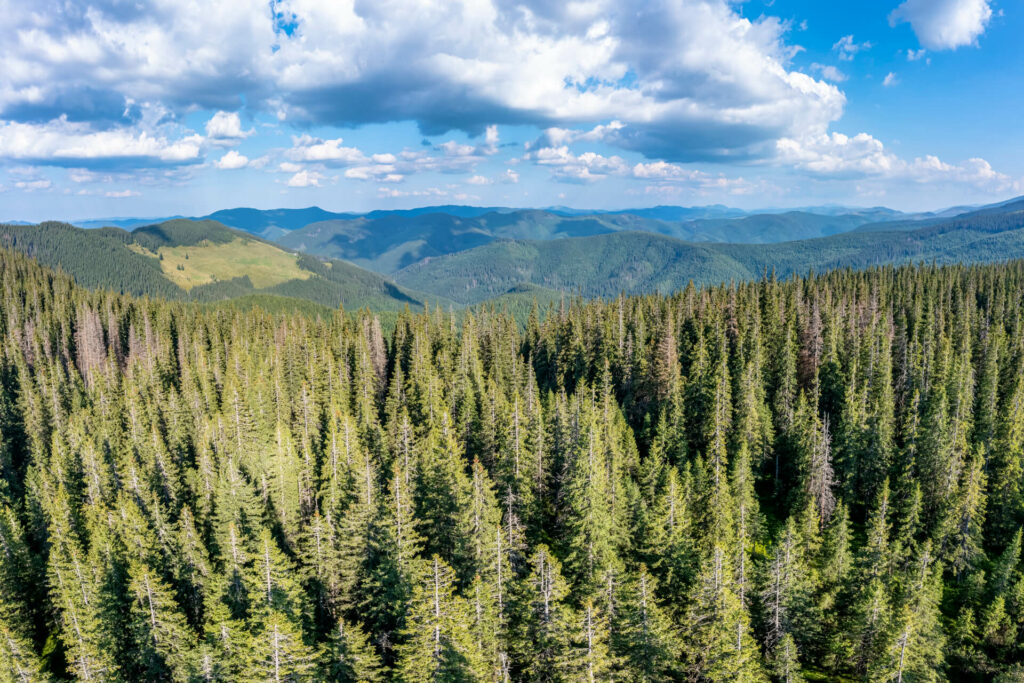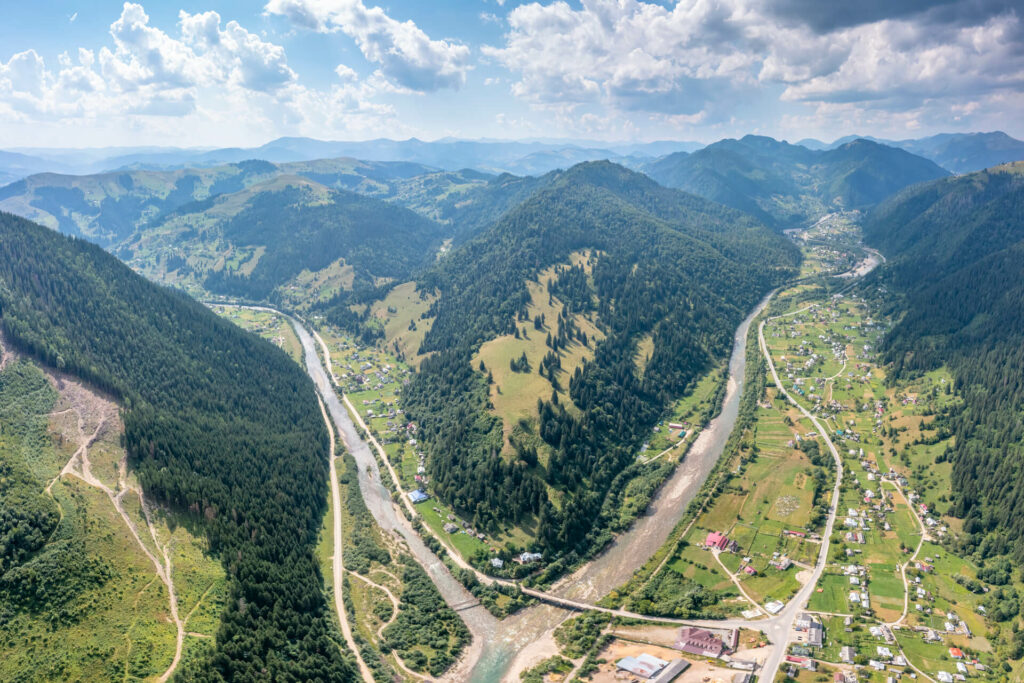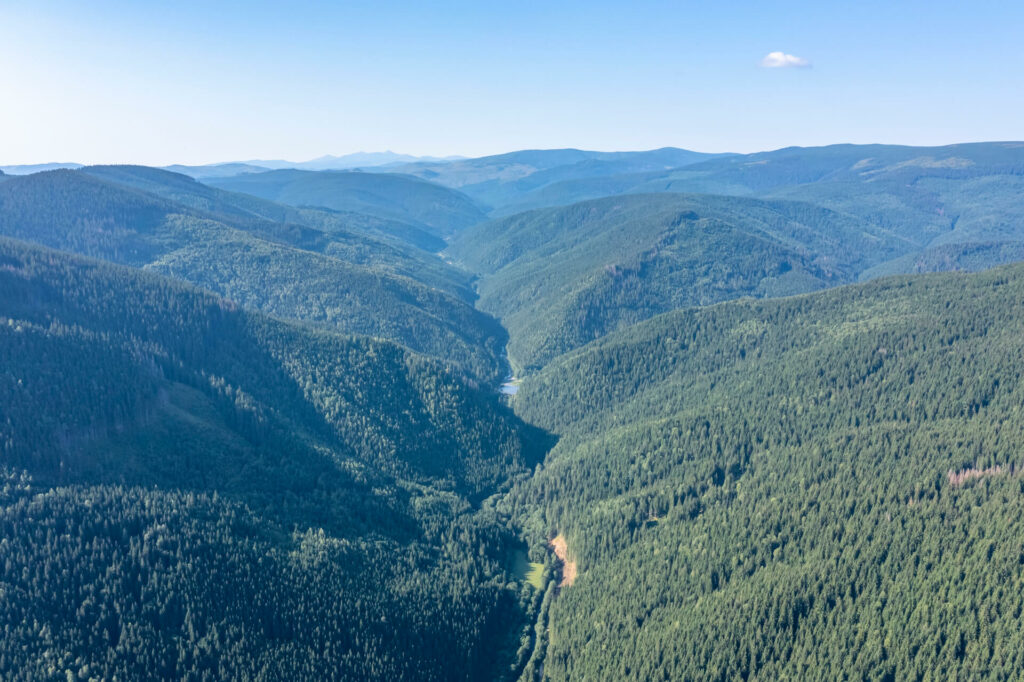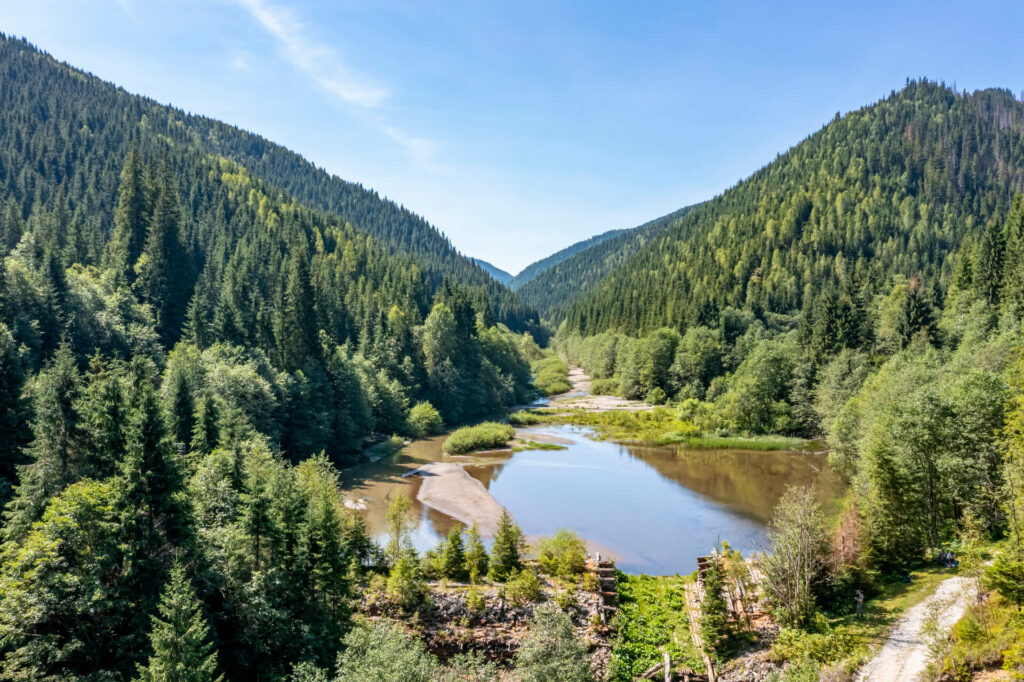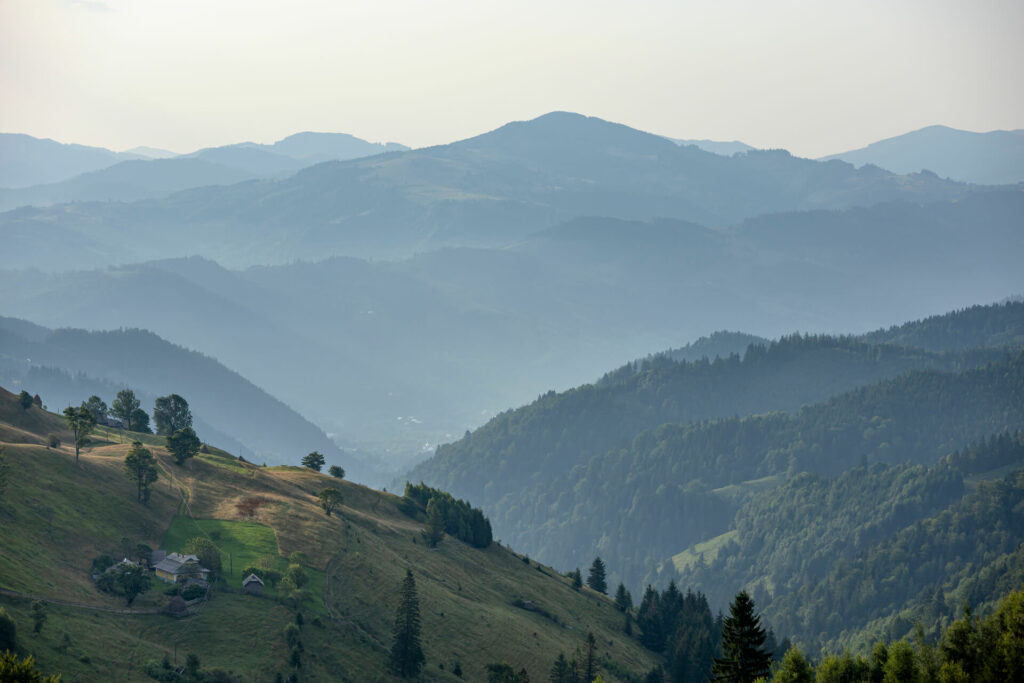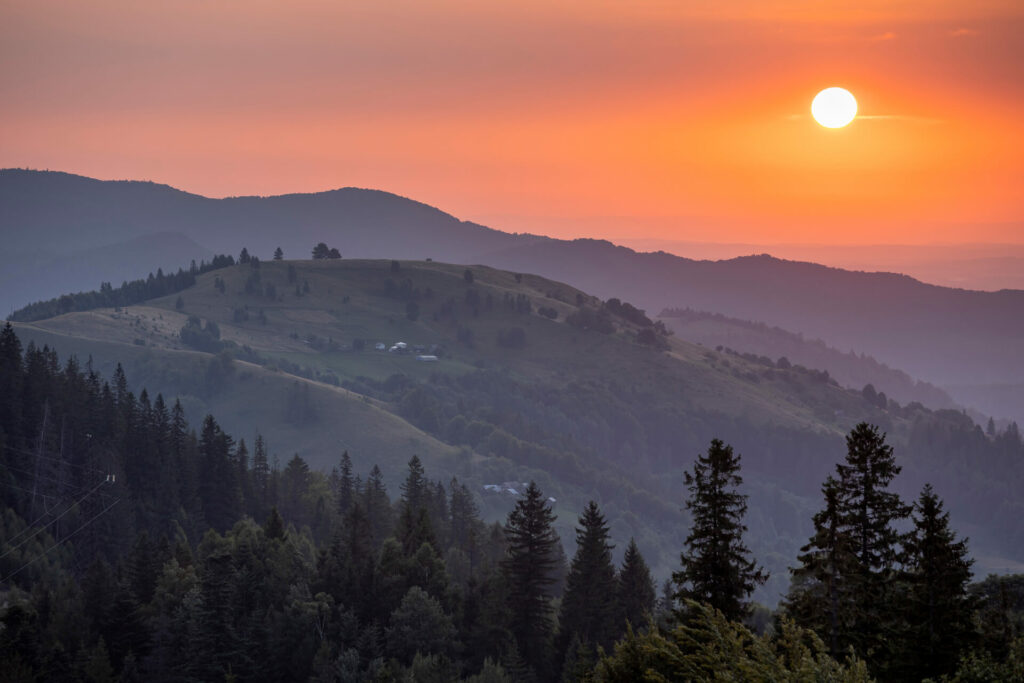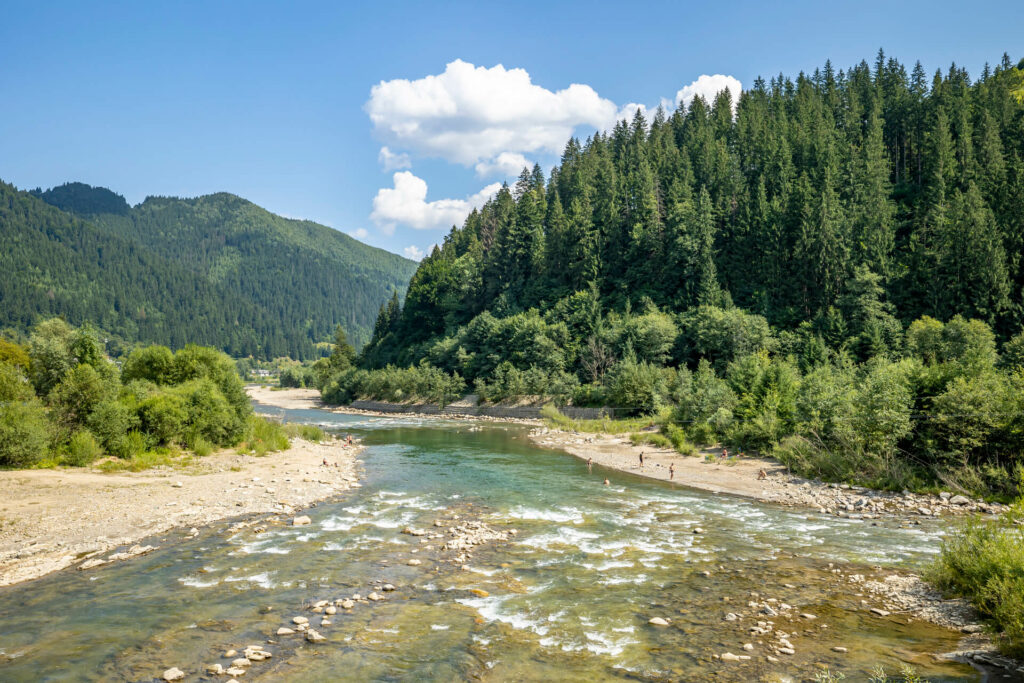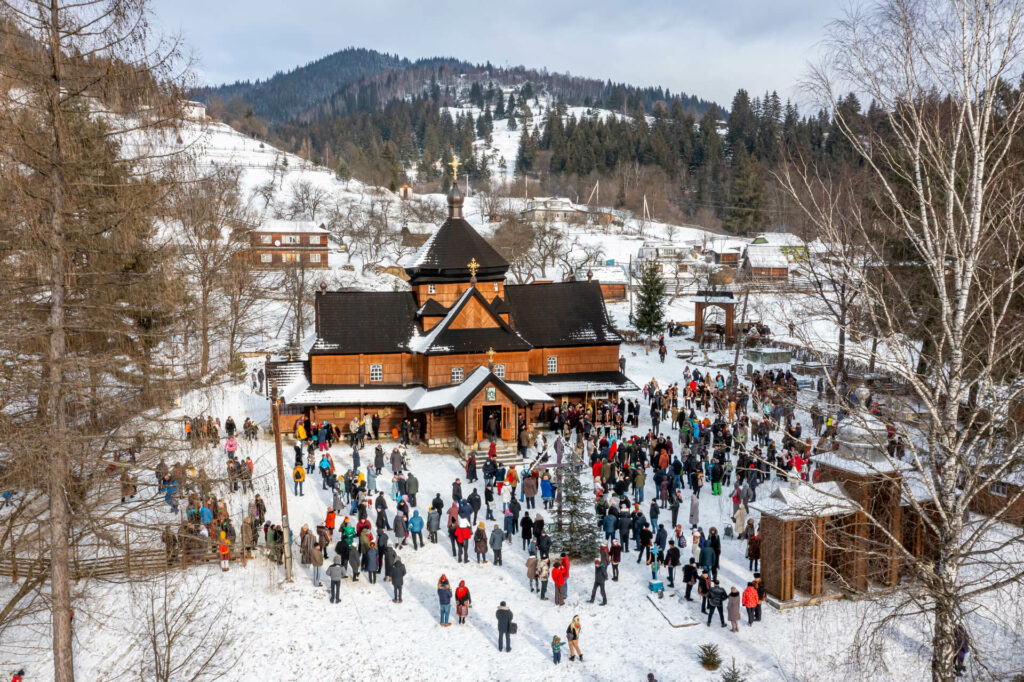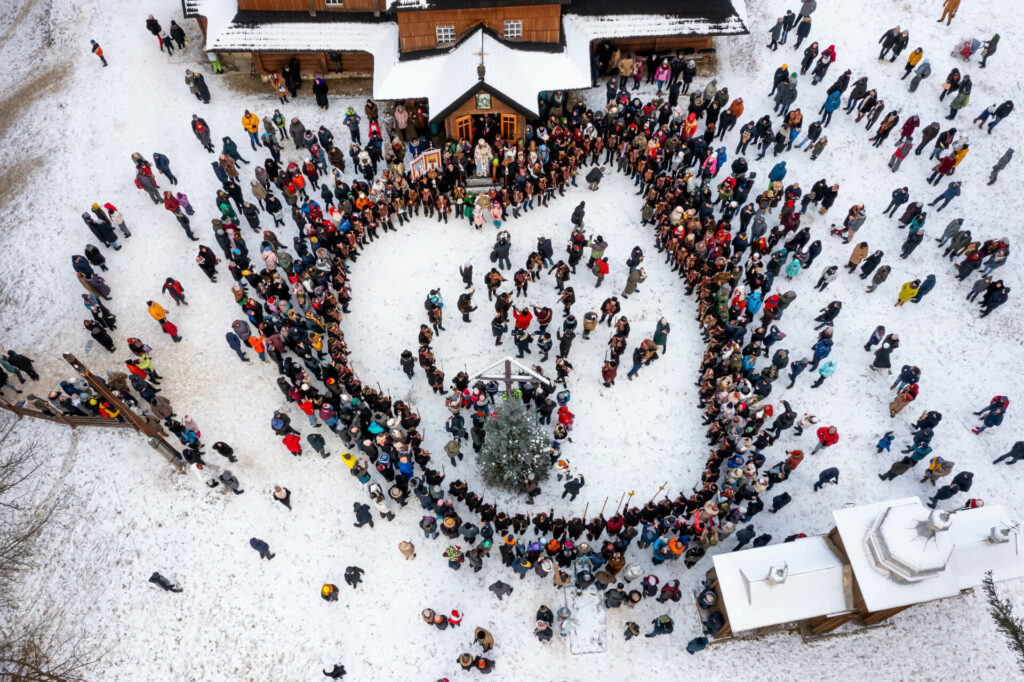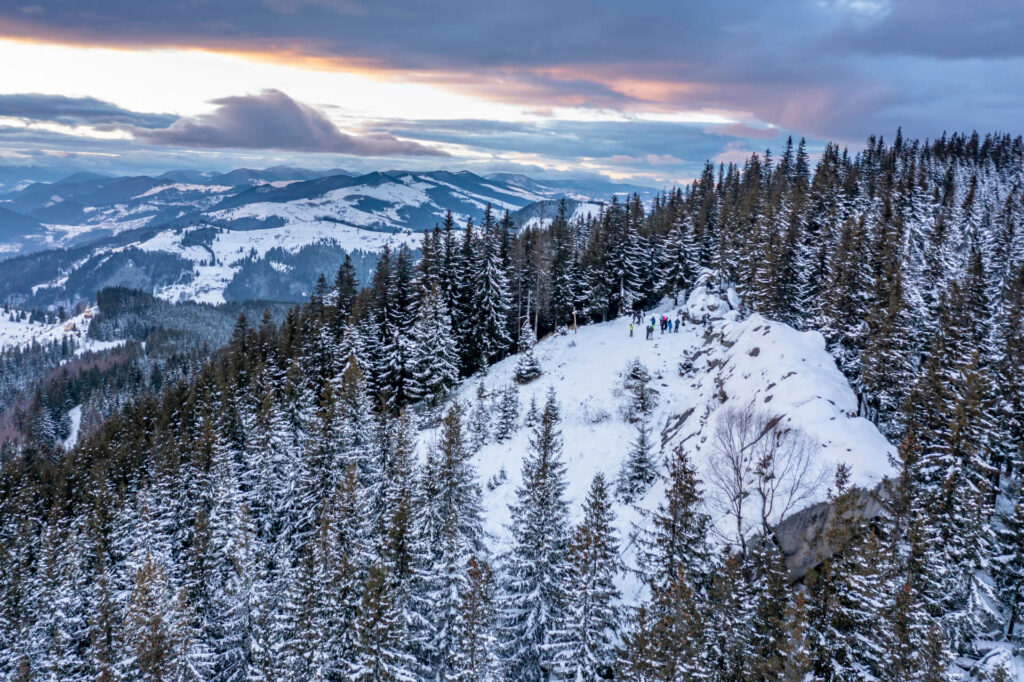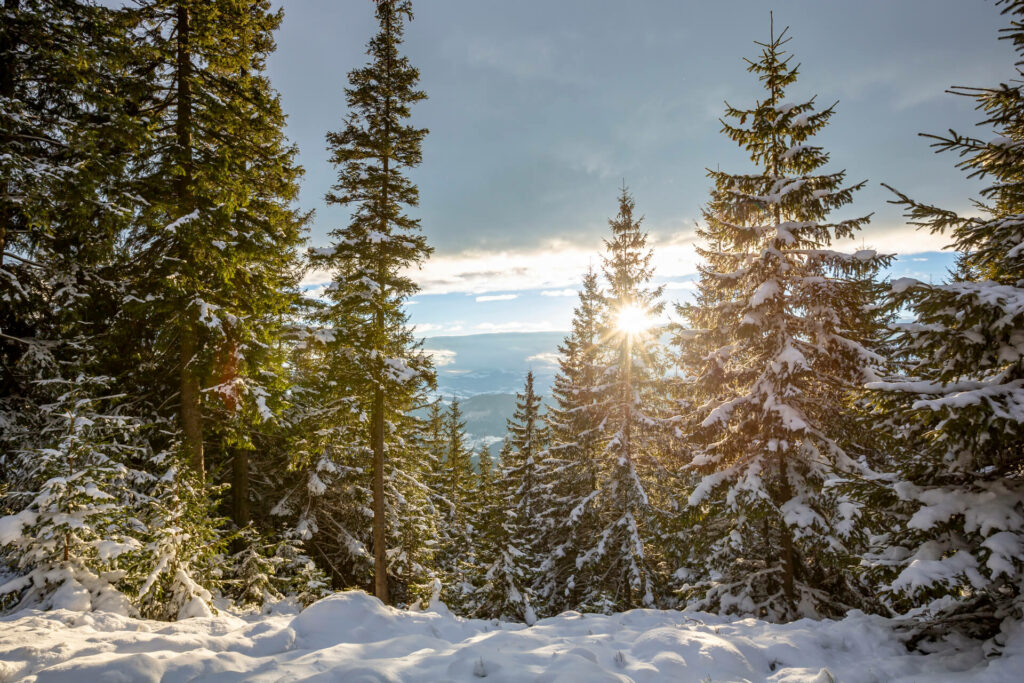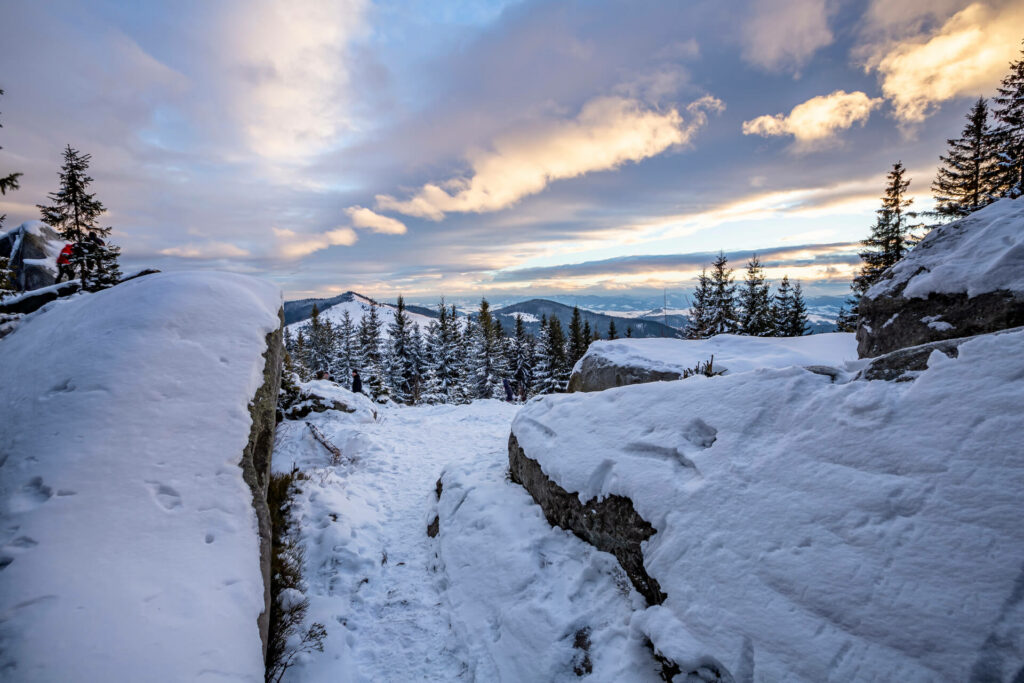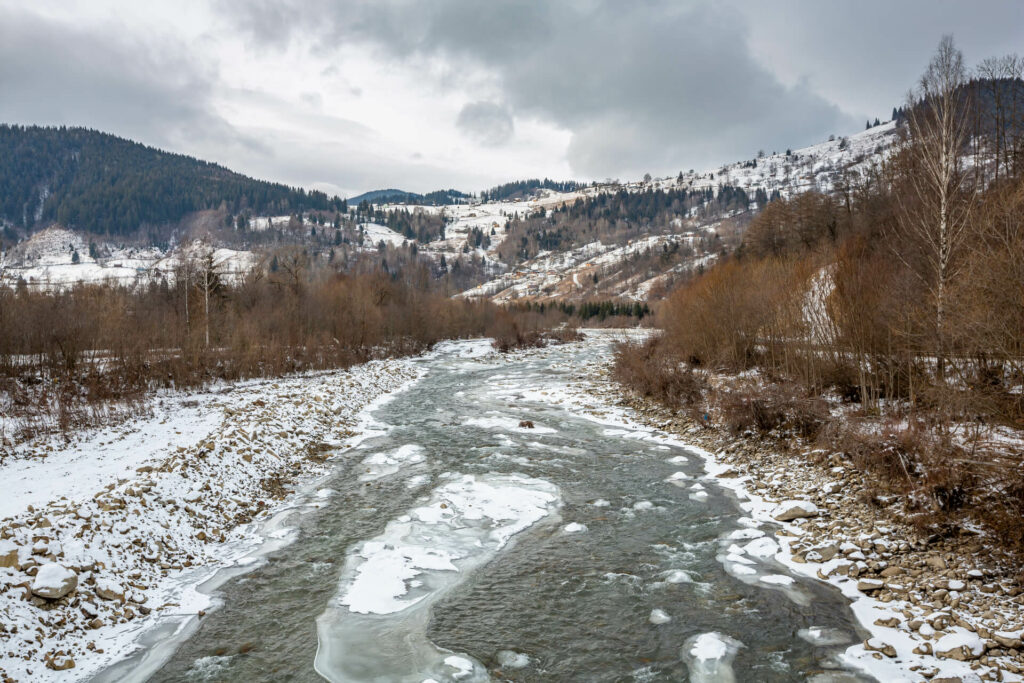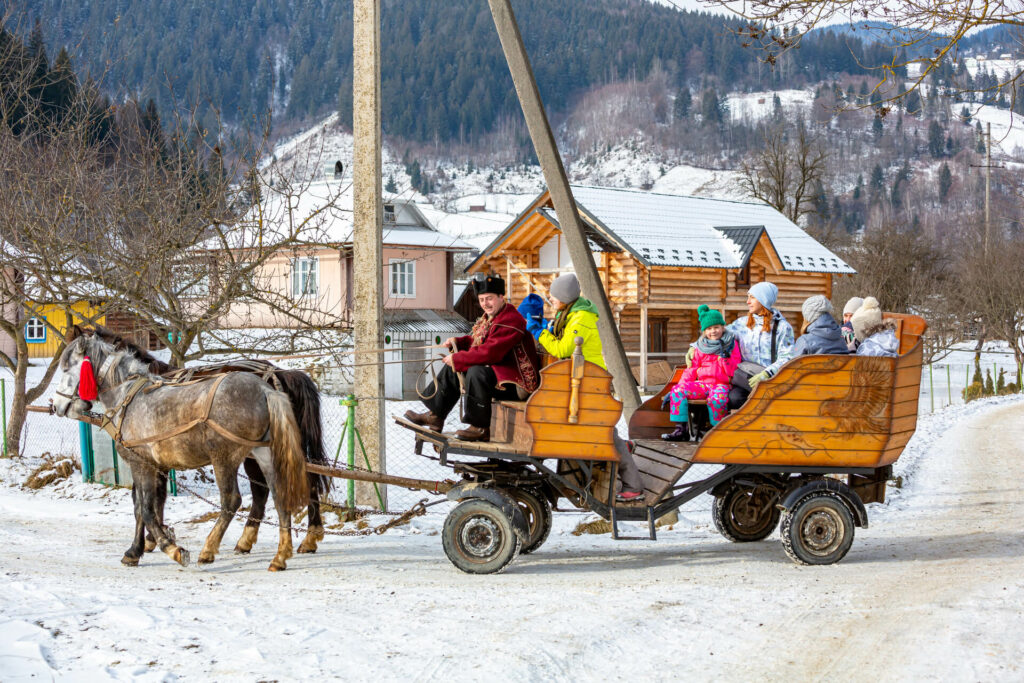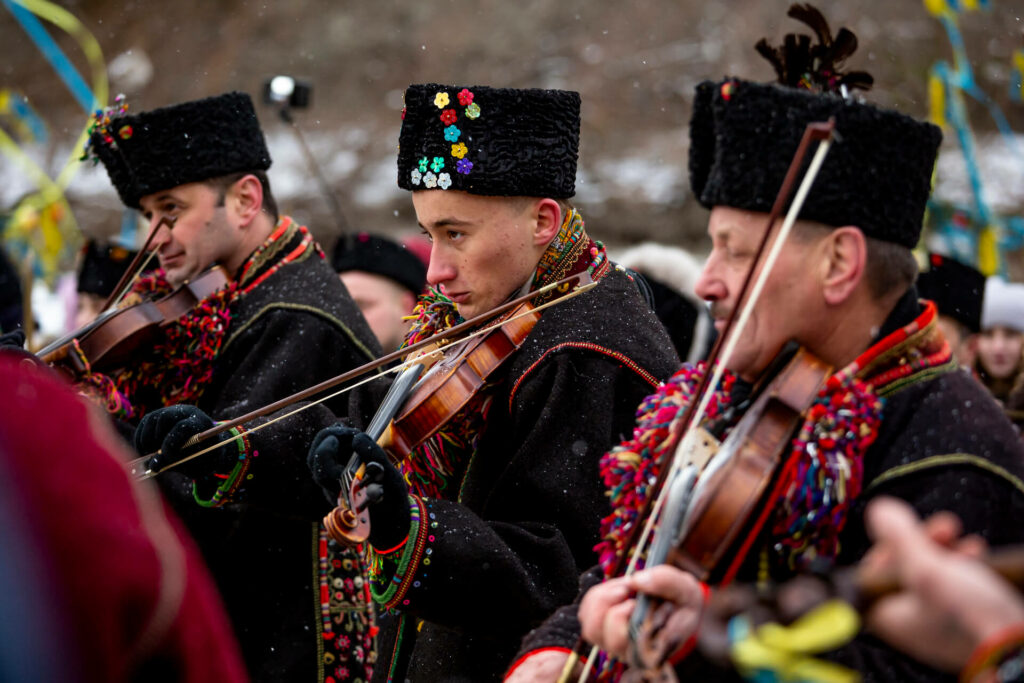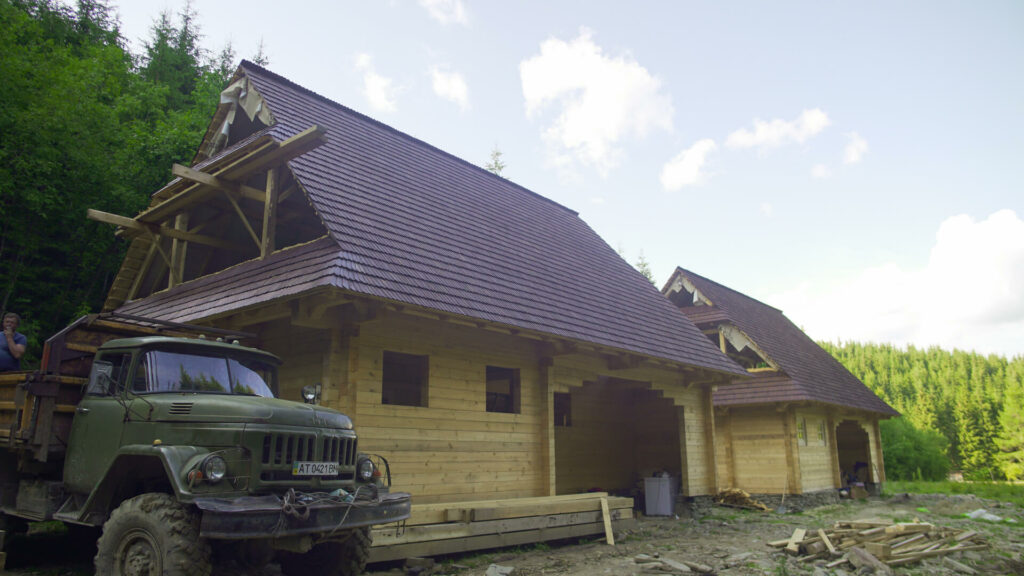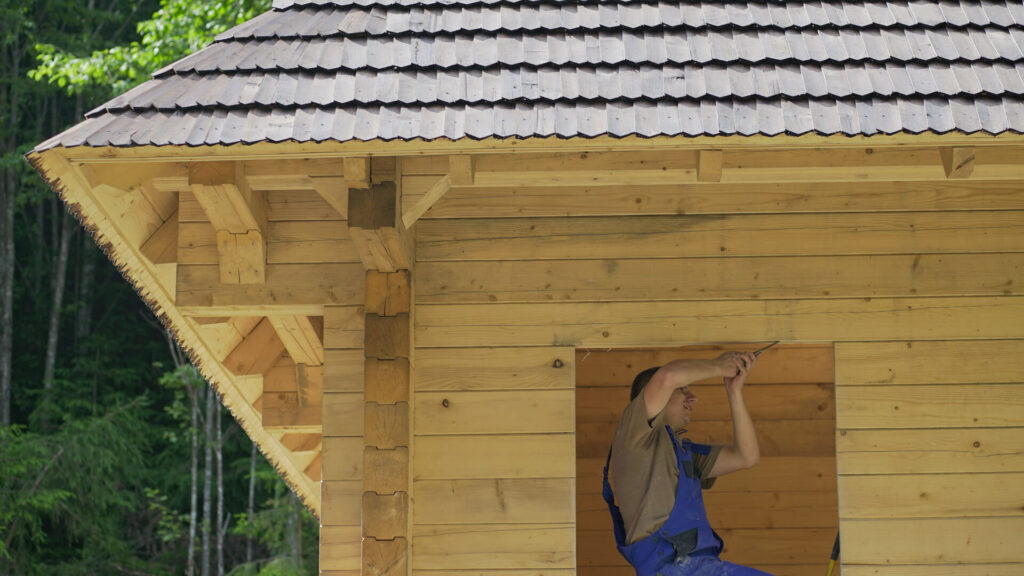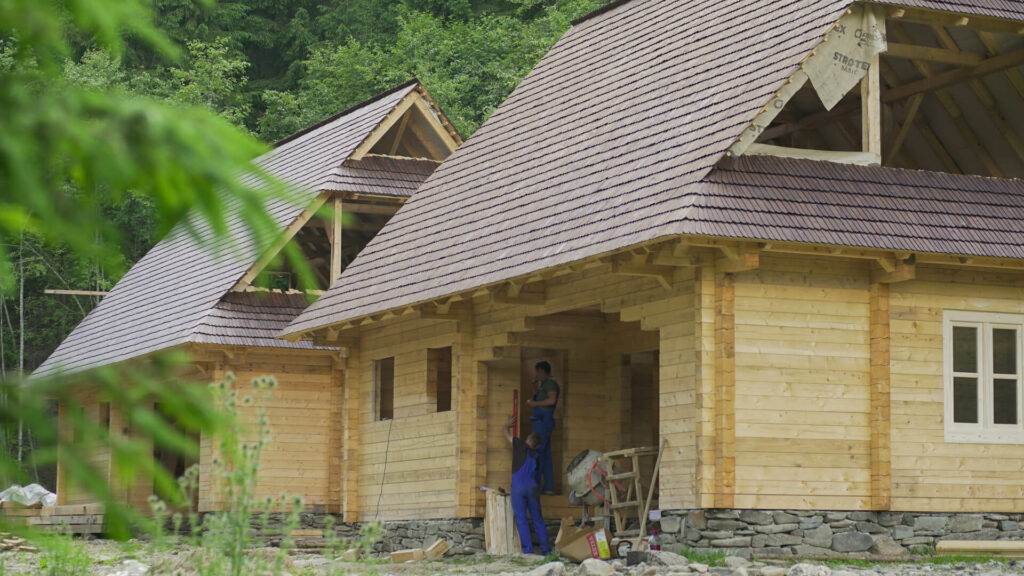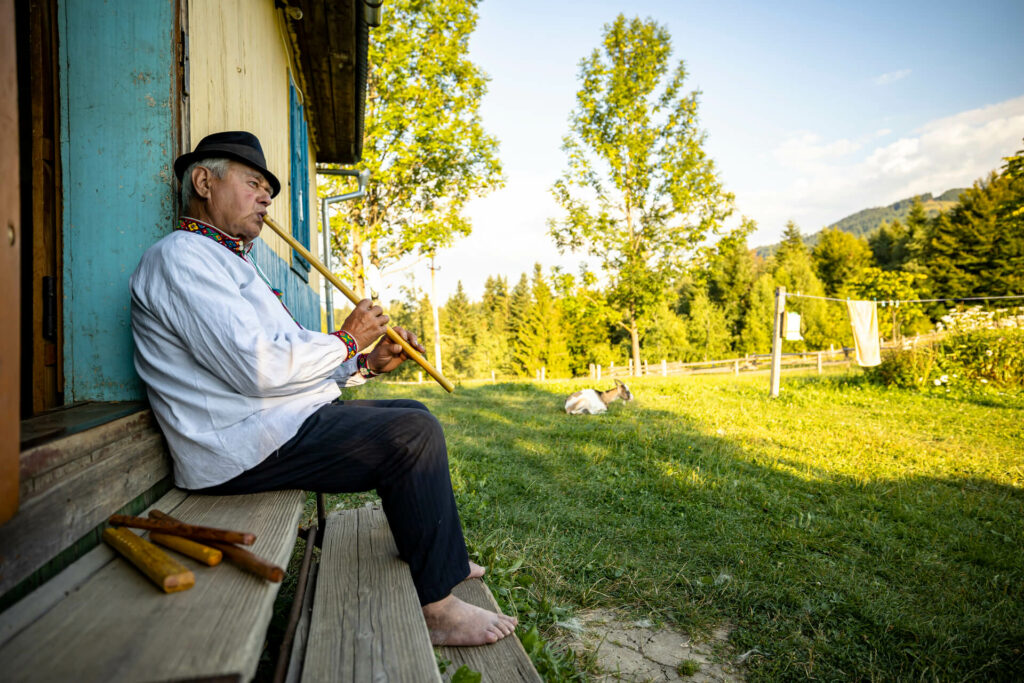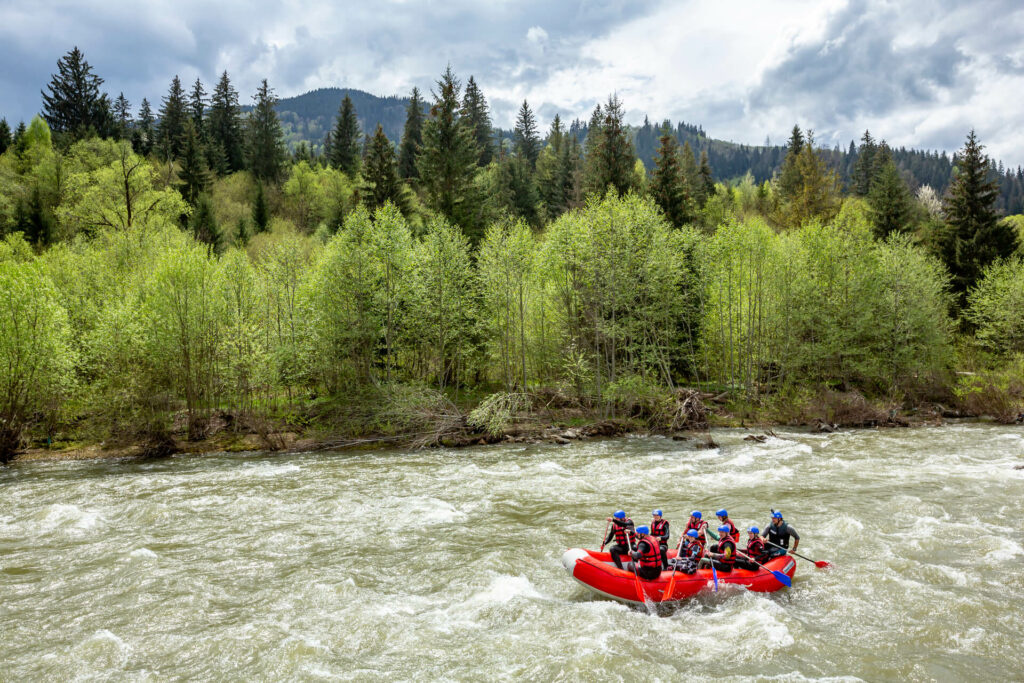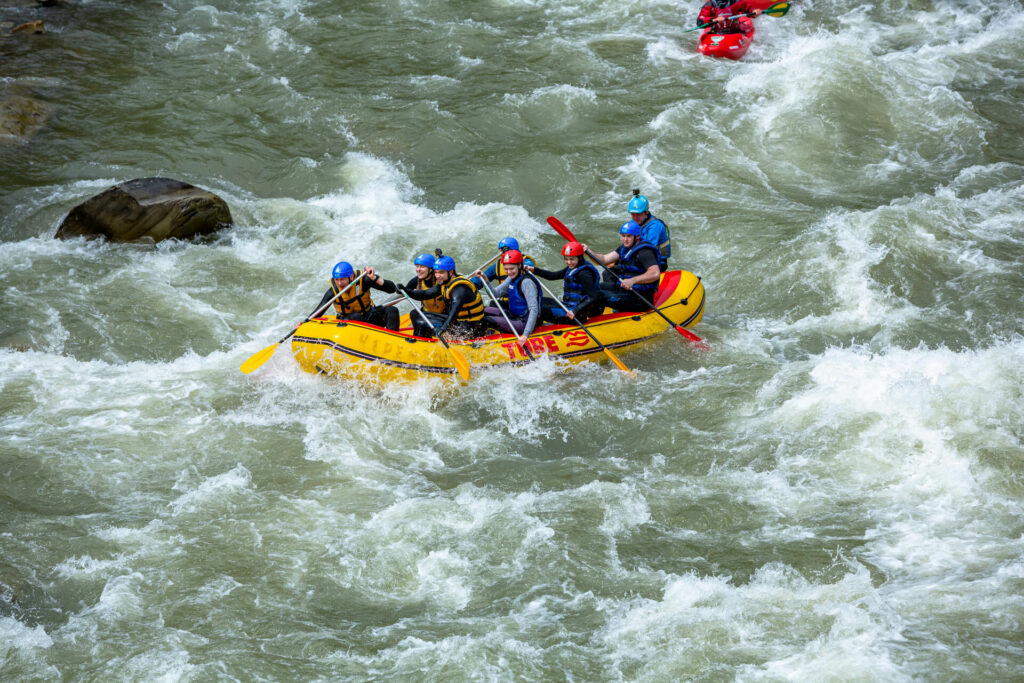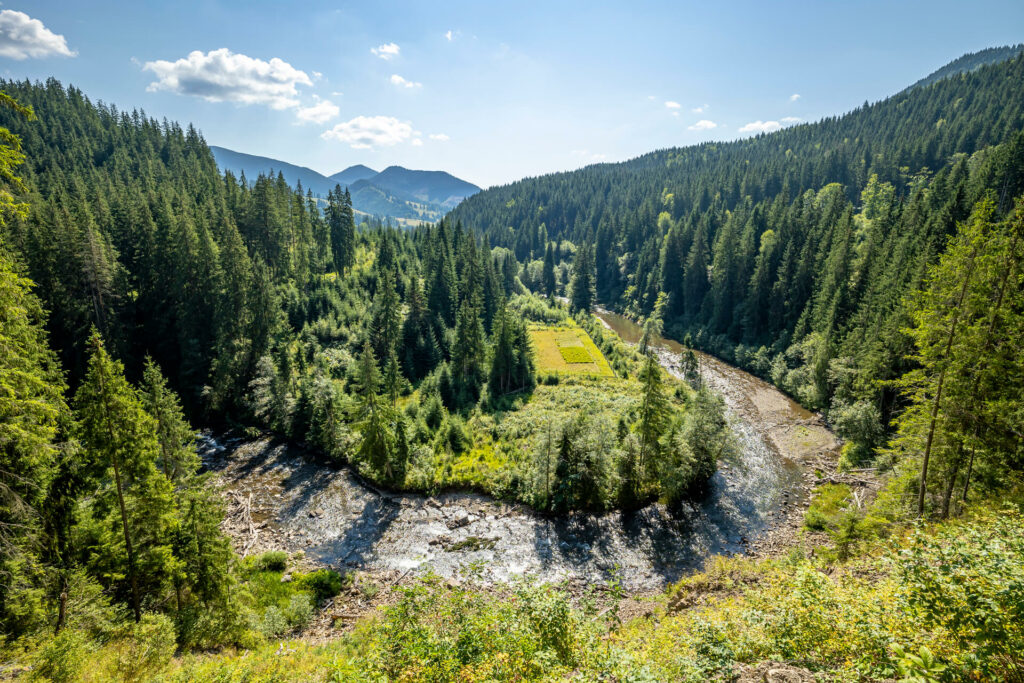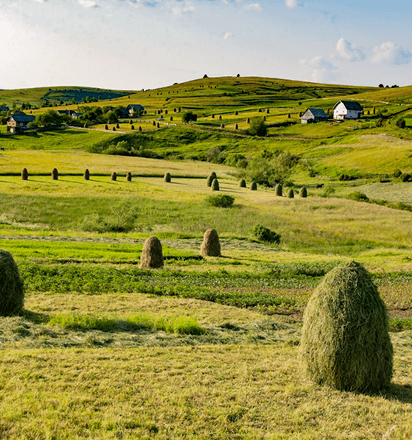Verkhovynskyi
Verkhovynskyi National Nature Park (NNP) is the most remote and inaccessible part of the Ukrainian Carpathians. Therefore, here you can see pristine landscapes that have been formed over the course of millions of years.
What is particularly striking about the park is its ancient metamorphic formations, with the park’s surface covered by Paleozoic and Mesozoic sedimentary rocks. On the region’s mountainous slopes, there are rocky outcrops formed of Jurassic limestone blocks, creating ethereal landscapes. Some of the most important primeval forests and subalpine meadows in the world grow here and you can also find the sources of the White and Black Cheremoskyi rivers.
Park area 120,22 Sq km.





Verkhovynskyi is the capital of the Hutsul region and the epicenter of Hutsul culture. Pysanska egg decoration, the production of musical instruments, as well as traditional weaving and woodcarving are amongst the many cultural highlights in the park.
There are also several museums catering to all tastes: including those showcasing Hutsul culture, including cheese making, bed making, and trembitary – focused on the traditional alpine wooden horn commonly used by the Hutsal people. A museum located in a former Hutsal home has attracted particular attention by screening the acclaimed film: Shadows of Forgotten Ancestors.
Overcoming the challenges caused by war. Since the start of the full-scale Russian invasion of Ukraine, the Verkhovynskyi NNP has provided shelter for internally displaced persons. It was a difficult task for the park to adapt to become a refuge center: Frankfurt Zoological Society (FZS) offered support in preparing accommodation for the hundreds of people seeking refuge from the effects of the war. With support from partners in Romania, Germany, Poland, and Slovakia, FZS provided essential items including medicines, warm clothes, hygiene products, and food supplies. The organization also provided ongoing supplies of food and hygiene products for displaced people residing in the reserve’s temporary housing and those residing in surrounding communities.
In order to ensure operations can continue in the event of a power outage, FZS also purchased and provided a generator and fuel to allow the park’s administration teams to continue their essential work without interruption.
Expansion and consolidation of nature conservation areas. Since 2013, FZS has supported and contributed to efforts to expand the Verkhovynskyi NNP. Plans have been drawn up to incorporate the Verkhovynskyi Forest Farm into the park boundaries – an area of around 12,000 hectares that is currently under state management. The high mountain forests that cover the lands are located between the current boundaties of the Verkhovynskyi and Carpathian NNPs. This missing puzzle piece will connect the boundaries of the Cheremoskyi and Verkhovynskyi NNPs with the Carpathian NNP, the Carpathian Biosphere Reserve, and the Gorgany Nature Reserve.
Altogether, this incredible cluster of nature conservation areas would span an area of about 150,000 hectares. It would also create a cross-border cluster of nature conservation areas, together with neighboring Romania, with a total area of about 250,000 hectares. So far, these proposals have only garnered partial support, and in 2021 the territory of the Verkhovynskyi NNP was expanded to some 1695 hectares.
In 2021, FZS supported the renewal of detailed plans to expand the park’s boundaries through the incorporation of the state-managed lands of the Verkhovynskyi Forest Farm, with an area of almost 10,000 hectares.
This incredible array of interlinked cross-border nature conservation initiatives will help to preserve this incredible part of the Carpathians.
Building and reconstruction. The Frankfurt Zoological Society supported the renovation of the facade of the park’s administrative office building, which also houses a hotel and hostel. The building of two modern Hutsul-style wooden houses the village was completed in 2023, which will be used by the park’s security service. There are plans in future to replace all 10 temporary buildings that house rangers are on duty.
Biodiversity monitoring. To qualitatively monitor the state of biodiversity in the Verkhovynskyi NNP, FZS utilizes the Spatial Monitoring and Reporting Tool (SMART) system. The system helps to collect, measure, and evaluate biodiversity data effectively and efficiently. Smartphones and other necessary equipment were purchased and provided to park security personnel. Additionally, training and ongoing user support is provided. Since 2021, camera traps have been used to monitor large predators.
Support for creating management plans. FZS aims to conserve wildlife and ecosystems, with a focus on safeguarding protected areas and outstanding wild places. FZS provides support to the Verkhovynskyi NNP as it carries out essential conservation tasks.
The conservation efforts in the Verkhovynskyi NNP are coordinated under the “Conservation of highly valuable primeval and old-growth forests in selected national parks in the Ukrainian Carpathians” project, a collaborative initiative aimed at effectively organizing and managing conservation work in the nature reserve. This consists of a multi-stage process:
- Assessment of the ecological, sociological, and cultural values and resources of the nature reserve, including their conditions, threats, and impacts.
- Formulating a 10-year conservation strategy.
- Creating a five-year action plan to maximize results in preserving high conservation value aspects of the nature reserve.
The project’s development and organization are being carried out by a team of FZS experts, nature reserve specialists, and local communities and other stakeholders. Management plans for the project are currently under development.
Operating cost support. Due to constraints on state funding as a result of Russia’s ongoing invasion of Ukraine, FZS has been providing ongoing financial support for the implementation of the conservation plan in the NNP since May 2022. This assistance includes procuring office space, communications support, fuel expenses, and maintenance and repair costs for vehicles.
Improving the ability to perform environmental protection tasks. As part of the Support to Nature Protected Areas in Ukraine (SNPA) project, of which FZS is the main partner, vehicles (including cars and motorcycles) and computer and IT equipment have been purchased for park employees, as well as uniforms for security personnel.
What do we do
By combining international experience with local knowledge and expertise, we support the preservation of the large areas of pristine and near-pristine nature in Ukraine. We mainly do this by supporting projects in major protected areas such as national parks, biosphere reserves, and large nature reserves.
